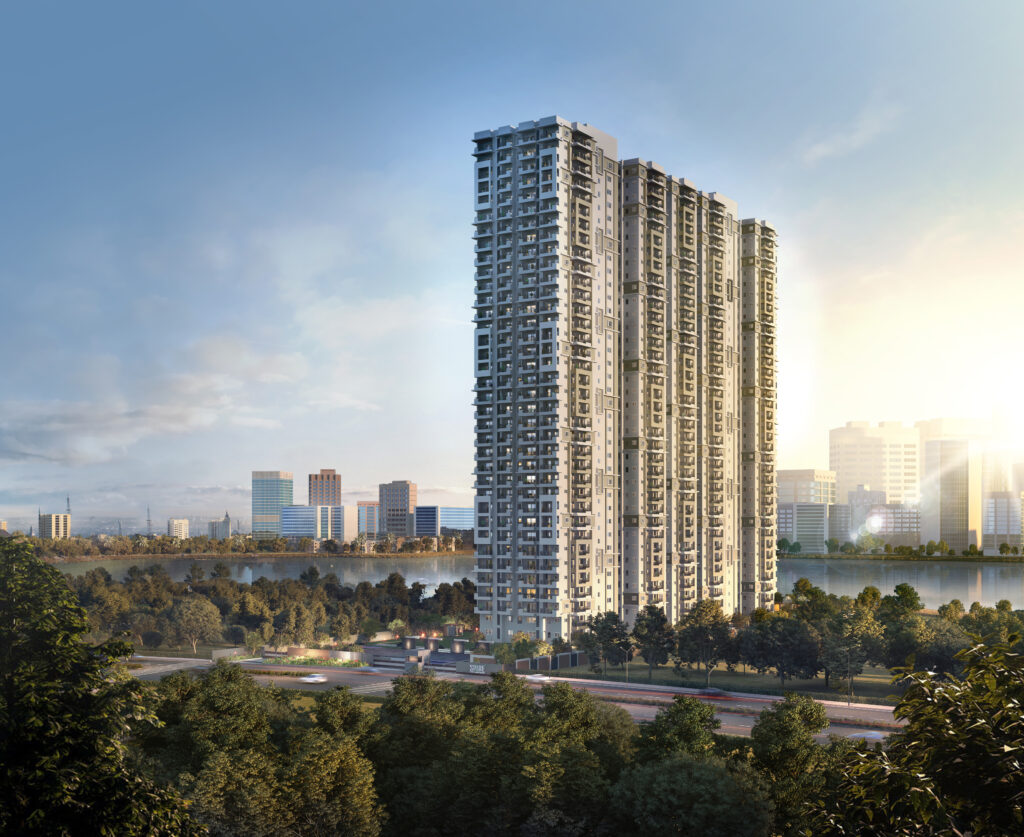Under Construction or Ready to Move flats in Hyderabad?
Are you in the market for a new apartment in Hyderabad’s gated communities? If so, you may find yourself faced with the decision of choosing between an under-construction property or ready to move flats in Hyderabad. Both options have their pros and cons, and making the right choice can have a significant impact on your future home buying experience. In this blog, we’ll explore this dilemma in detail and discuss six key subtopics to help you make an informed decision.

Timeframe and Immediate Possession:





- Construction timeline for under-construction properties: Under-construction properties may have varying timelines depending on the stage of construction, size, and complexity of the project. Construction processes can sometimes be delayed due to factors such as regulatory approvals, weather conditions, labor issues, or other unforeseen circumstances. It’s important to carefully assess the expected construction timeline provided by the developer and be prepared for potential delays.
- Immediate possession of ready-to-move-in apartments: Ready-to-move-in apartments offer the advantage of immediate possession, allowing you to move in right away. This can be beneficial if you have a time-sensitive requirement, such as relocating for work, or if you want to avoid the hassle of waiting for construction to complete. It also eliminates the uncertainty associated with the construction timeline of under-construction properties.
- Flexibility and convenience of ready-to-move-in apartments: Ready-to-move-in apartments are already built and come with the advantage of being able to see and experience the property before making a purchase decision. You can assess the quality, finishes, and amenities of the apartment, and get a clear picture of what you’re buying. Additionally, you can avoid the inconvenience of living in a construction site, dealing with construction-related noise, dust, and disruptions.
- Waiting period for under-construction properties: Under-construction properties typically have a waiting period until the construction is completed and possession is granted. This waiting period can range from several months to years, depending on the project’s progress. If you have a specific timeframe in mind for moving into the property, under-construction properties may not be the ideal choice, as delays in construction can impact your plans.
- Planning and budgeting for under-construction properties: Buying an under-construction property requires careful planning and budgeting, considering the potential delays in construction and possession. You may need to plan for alternative accommodations during the waiting period and manage your finances accordingly. On the other hand, with a ready-to-move-in apartment, you can immediately start living in the property without additional planning or budgeting for alternative accommodations.
Customization and Personalization:



- Customization options: Buying an under-construction property gives you the flexibility to customize certain aspects of the unit according to your preferences. This may include choosing the layout, finishes, fixtures, and other design elements that align with your personal taste and requirements. This level of customization can make your new home truly your own and give you more control over the final product.
- Personalization: Under-construction properties provide you with the chance to add personal touches to your home, such as choosing the color scheme, flooring materials, and other design elements that reflect your style and lifestyle. This can help create a sense of ownership and pride in your new home.
- Limited customization options in ready-to-move-in apartments: In contrast, ready-to-move-in apartments may have limited customization options, as the property is already built and may not cater to individual preferences. The finishes, fixtures, and layout may already be predetermined, and any changes or customization may require additional approvals or modifications, which may not be feasible or may incur additional costs.
It’s important to note that the extent of customization and personalization options may vary depending on the developer, the stage of construction, and the terms and conditions of the purchase agreement. It’s essential to thoroughly review the customization options, associated costs, and timelines before making a decision.
Financial Considerations:





- Payment plans: Under-construction properties often offer more flexible payment plans, such as construction-linked payment schedules. This means you may have the option to pay in installments based on the construction progress, which can help manage your cash flow and budget. However, it’s crucial to thoroughly review the payment plan, associated terms and conditions, and the reputation and track record of the developer before making a decision.
- Risks of delays and changes: Under-construction properties come with the inherent risks of construction delays, changes in the project’s scope, or other unforeseen challenges. These risks can impact your budget and timeline for possession. It’s important to thoroughly assess the developer’s reputation, track record, and financial stability to mitigate these risks.
- Immediate payment in ready-to-move-in apartments: In contrast, ready-to-move-in apartments may require immediate payment of the entire purchase price. This means you need to have the entire amount available upfront or arrange for financing accordingly. However, once the payment is made, you have certainty in terms of possession and the quality of construction.
- Additional costs and charges: It’s important to consider other financial aspects such as stamp duty, registration charges, maintenance charges, and other associated costs, which may vary depending on whether you choose an under-construction property or a ready-to-move-in apartment. These costs can impact your overall budget and financial planning.
- Financing options: Financing options, including home loans, may vary for under-construction properties and ready-to-move-in apartments. It’s important to understand the financing options available, the interest rates, and associated terms and conditions for each type of property to make an informed decision.
Quality and Assurance:





- Developer’s reputation and track record: For under-construction properties, it’s important to thoroughly assess the reputation and track record of the developer. Research their previous projects, quality of construction, timely delivery, and customer feedback to gauge their reliability and trustworthiness. Checking for their certifications, awards, and industry reputation can also provide insights into their commitment to quality.
- Approvals and permits: Under-construction properties need to have the necessary approvals and permits from relevant authorities. Ensure that the project has obtained all the required approvals, including building permits, environmental clearances, and other regulatory compliances, to ensure that it is being constructed as per the approved plans and norms.
- Quality inspection for ready-to-move-in apartments: One of the advantages of ready-to-move-in apartments is that you can physically inspect the property before making a purchase decision. This allows you to assess the quality of construction, finishes, fixtures, and amenities, and make an informed decision about the property’s condition. Engaging a professional home inspector can provide an expert evaluation of the property’s quality and identify any potential issues.
- Amenities and facilities: Consider the amenities and facilities offered by the property, whether it’s under construction or ready-to-move-in. Assess the quality and functionality of amenities such as elevators, parking spaces, common areas, security systems, water supply, and power backup to ensure they meet your expectations and requirements.
- Warranty and after-sales service: Check if the developer offers any warranty or after-sales service for the property, especially for under-construction properties. Having a warranty or after-sales service can provide assurance and peace of mind about the quality of construction and prompt resolution of any issues that may arise after possession.
Risk and Returns:





- Risks associated with under-construction properties: Under-construction properties carry the risk of construction delays, changes in the project’s scope, or other unforeseen issues that may affect the property’s value and potential returns. These risks may impact your budget, timeline, and expected returns on investment. It’s important to thoroughly assess the credibility and track record of the developer, review the project’s progress, and understand the risks associated with the construction process.
- Returns potential of under-construction properties: Despite the risks, under-construction properties can offer potential returns in terms of appreciation in property value. If the location and demand for the property are favorable, the property’s value may increase over time, resulting in potential capital gains. Additionally, under-construction properties may provide more flexible payment plans, allowing you to manage your finances better and potentially earn rental income once the property is completed.
- Returns potential of ready-to-move-in apartments: Ready-to-move-in apartments offer the advantage of immediate possession, allowing you to start earning rental income or move in right away. These properties may also have a higher resale value due to their convenience and reduced risks compared to under-construction properties. However, the potential returns may be relatively lower compared to under-construction properties, as the property’s value may have already been factored into the price.
- Pricing and affordability: Pricing is an important factor to consider when assessing the risk and returns of a property. Under-construction properties may be priced lower compared to ready-to-move-in apartments due to the risks and uncertainties associated with the construction process. On the other hand, ready-to-move-in apartments may be priced higher due to the added convenience and reduced risks. Consider your budget, affordability, and potential returns in relation to the property’s pricing.
- Market conditions and demand: Market conditions and demand for properties in the location where you are considering buying also impact the risk and returns potential. Research the local real estate market and assess the demand for both under-construction and ready-to-move-in properties. Consider factors such as location, infrastructure development, amenities, and future prospects of the area to gauge the demand and potential returns.
Amenities and Infrastructure:





- Amenities and facilities in under-construction properties: Under-construction properties often promise a range of amenities and facilities as part of their marketing strategy. However, it’s important to note that these amenities may not be available immediately upon possession, as the entire project may take time to complete. Construction of amenities like parks, swimming pools, clubhouses, or security systems may be dependent on the progress of the construction and may be delayed.
- Fully functional amenities in ready-to-move-in apartments: Ready-to-move-in apartments, on the other hand, usually have fully functional amenities and infrastructure as they are already built and operational. This means that you can immediately start enjoying the benefits of amenities like parks, swimming pools, clubhouses, or security systems upon moving into the apartment. This can offer immediate convenience and comfort for you and your family.
- Convenience of operational amenities: Having operational amenities can add value to your living experience in a gated community. You and your family can avail yourselves of the facilities without any delays or uncertainties. These amenities can contribute to a better quality of life, especially if you have specific requirements or preferences, such as a fitness center, children’s play area, or sports facilities.
- Assessing the quality and maintenance of amenities: When considering under-construction properties, it’s essential to carefully assess the promised amenities and their quality. You may need to rely on the reputation and track record of the developer, as well as the approvals obtained for the project. On the other hand, with a ready-to-move-in apartment, you can physically inspect and assess the quality of the amenities and infrastructure before making a purchase decision.
- Budgeting for amenities and infrastructure: It’s important to consider the cost implications of amenities and infrastructure when comparing under-construction properties and ready-to-move-in apartments. Under-construction properties may offer amenities at a lower cost initially, but you may need to budget for potential increases in maintenance charges or additional costs for amenities that are not available immediately upon possession. On the other hand, ready-to-move-in apartments may have higher maintenance charges, but you can be assured of the operational amenities and their associated costs.
Ultimately, if you are willing to wait for the construction to complete and customize your home to your preferences, an under-construction property may be a suitable choice. However, if you need immediate possession, want to avoid the risks associated with construction delays, and prefer a property with fully functional amenities, a ready-to-move-in apartment may be the better option.
Whichever option you choose, it’s crucial to do thorough research, conduct due diligence, and work with a reliable and reputable developer to ensure a smooth and hassle-free home buying experience. Consider consulting with a real estate professional or a financial advisor to understand the financial implications and risks associated with your decision.
Check out ASBL Spire, ASBL Springs and ASBL Spectra












